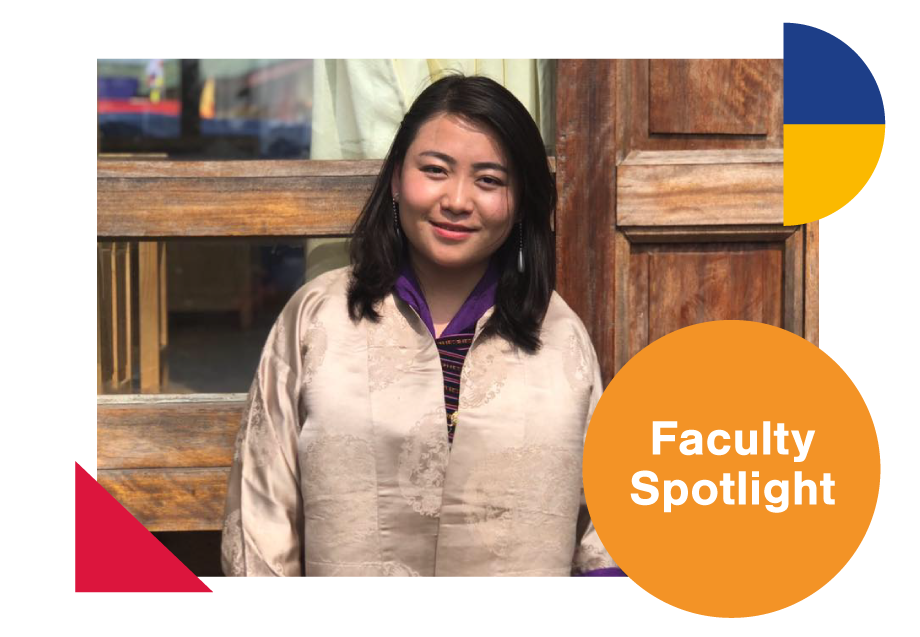Who are you and what do you do?
Kuzuzangpo, I am Chimi Dem, a faculty for Electrical Engineering Department, in Jigme Namgyel Engineering College, Royal University of Bhutan. I have been part of the university for the past year.
What are your initial impressions about Problem-Based Learning?
I feel that PBL is a student-centered or learner-driven pedagogical approach in which students learn about topics through the experience of solving an open-ended problem.
The exciting part of PBL is that it doesn’t focus on problem-solving through a defined solution, instead it allows the students to explore without being confined by certain boundaries. Certainly, it allows students to engage in active learning, better understanding and most importantly, retaining knowledge. PBL approaches and methodologies inspire students to be creative and more inclusive in their approaches to solving an open-ended problem.
How do you plan to include Problem-Based Learning in your teaching?
Since PBL is a very flexible concept, applicable within the whole spectrum of learning, I feel that PBL as a tool could help students to deeply learn about a subject, and to explore it thoroughly. Most students are well equipped with the latest technology and are interested in self-exploration; I wish to include PBL concepts and methodologies in the projects, assignments and group works that I assign to my students. For example, I teach electrical design and estimation, and there, I let my students choose a building or a small room and let them identify the problems related to illumination in that particular workspace. What I would like, is to ask students to come up with solutions to improve the illumination of that particular space with multidisciplinary approaches. It may sound simple but I feel like this is part of what PBL does. Indeed, we have already started engaging in multidisciplinary PBL projects at JNEC.
What are your expectations for the PBL South Asia project?
The PBL South Asia project could be a groundbreaker in Asia regarding establishing modern teaching-learning pedagogies that would encourage a shift from conventional classroom approaches towards modern methods. Through my yet little experience in being part of the PBL South Asia project, I find these approaches to be absolutely relevant in Higher Education systems. I hope we will be able to extend and implement PBL concepts in all the colleges under the Royal university of Bhutan and in a later stage, also to the primary level of education, hence prepare better learners and teachers for the future.
Read more:
pblsouthasia.com
This post was written by AGI



